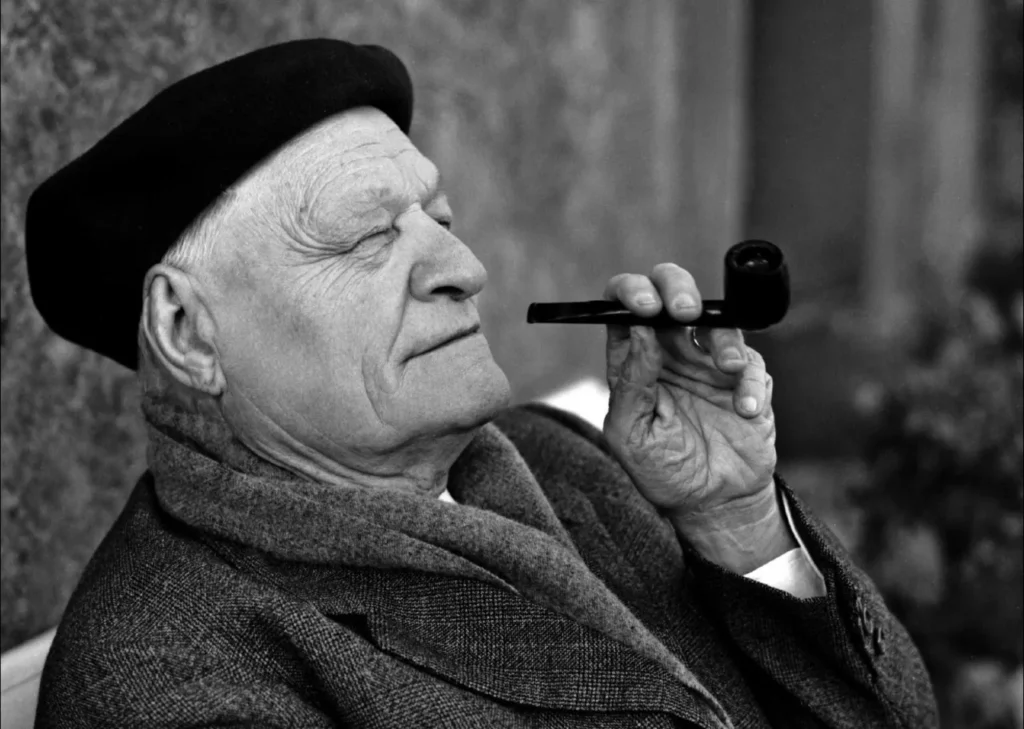Giuseppe Ungaretti (1888-1970) was an influential Italian poet and a prominent figure in the hermetic poetry movement. Born in Alexandria, Egypt, to Italian parents, Ungaretti moved to Italy in 1912, where he became involved in the literary and artistic circles of Florence, associating with writers such as Giovanni Papini and Ardengo Soffici.

Key Aspects of Ungaretti’s Life and Work
1. Early Life and Education:
• Born on February 10, 1888, in Alexandria, Egypt.
• Educated in Alexandria and later in Paris, where he studied at the Sorbonne.
• Influenced by French symbolist poets and the emerging modernist movement.
2. World War I:
• Enlisted in the Italian Army during World War I.
• His wartime experiences profoundly impacted his poetry, leading to a focus on themes of pain, loss, and the human condition.
3. Literary Career:
• “Il Porto Sepolto” (1916): His first major collection, which reflected the stark and minimalist style that characterized much of his work.
• “Allegria di Naufragi” (1919): Further established his reputation, with poems often reflecting his war experiences.
• Hermeticism: Ungaretti was a central figure in this literary movement, which emphasized concise, obscure, and highly symbolic language.
4. Later Works:
• “Sentimento del Tempo” (1933): Marked a shift towards more elaborate and baroque forms.
• “Il Dolore” (1947): A collection dealing with personal loss, including the death of his brother and his son.
• Continued to write and publish poetry and essays throughout his life.
5. Academic and Diplomatic Roles:
• Taught Italian literature at the University of São Paulo in Brazil (1936-1942).
• Appointed to the Chair of Modern Italian Literature at the University of Rome in 1942.
6. Recognition and Legacy:
• Widely regarded as one of Italy’s greatest 20th-century poets.
• His work has been translated into numerous languages and continues to be studied for its emotional depth and innovative style.
Ungaretti’s poetry is noted for its brevity and intensity, often stripping language down to its essentials to capture profound human emotions. His influence extends beyond Italian literature, contributing significantly to the broader modernist movement in European literature.
Bestselling Books by Giuseppe Ungaretti

















